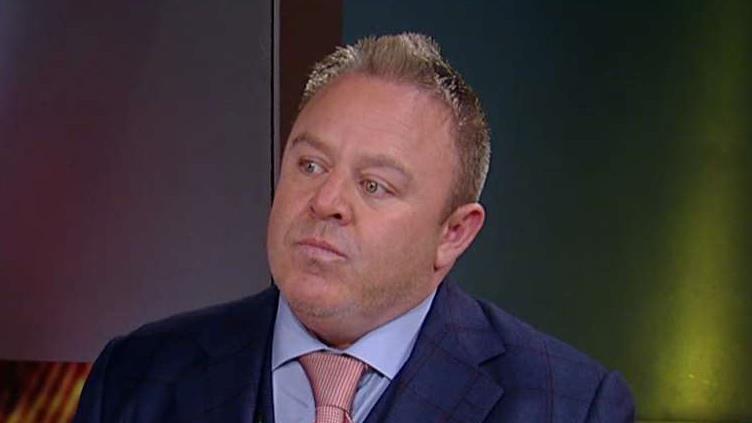Minimum wage hikes sending restaurants the way of the shopping mall?
Eighteen states raised their minimum wages at the start of 2018, but increasing labor costs are strangling the dining industry so much that restaurants could soon face the same fate as shopping malls.
“I think you’re going to see thousands of restaurants close their doors,” Willie Degel, “Restaurant Stakeout” host and CEO of Uncle Jack’s Steakhouse, told FOX Business. “Fine dining is going to go by the wayside.”
The downward cycle seems daunting to Degel and other industry insiders. As costs rise, only so much of the burden can be passed along to consumers in the form of price hikes before they decide they cannot afford the expense.
“When we increase in prices … we see guest count go down,” Degel noted. “The consumer is not willing to pay for the experience then.”
Michael Mabry, president of MOOYAH Burgers, Fries & Shakes, told FOX Business throughout recent years he also turned to price increases in order to balance out swelling costs. However, at the first opportunity, he brought menu prices back down by 10%.
In addition to raising prices, businesses often cope with minimum wage increases by firing staff. Last week, casual dining chain Red Robin Gourmet Burgers (NASDAQ:RRGB) announced it would eliminate busboy positions at 570 restaurant locations. Degel said he got rid of busboys at his New York restaurants two years ago, and has more recently turned to staff cuts “across the board.”
“I can’t fire any other people or I can’t even do my business,” he said.
Many business owners have turned to technology to both compensate for the loss of labor and to reduce expenses. Some restaurants, including Chili’s and Applebee’s, have already replaced servers with tableside tablets for placing orders and paying bills.
But technology has had another effect. Services like GrubHub (NYSE:GRUB) are beginning to change the nature of the dining experience for consumers, who can enjoy a meal from their favorite restaurants without ever having to step foot inside. Similar to the way e-commerce triggered a shift in the retail industry, mobile orders and delivery could deepen existing trends for restaurateurs by transforming the traditional, in-house meal.
Who suffers from these trends? One answer is low-skilled and entry-level workers, who are often the first layer of staff cut when profits run thin or new technologies are introduced.
“I think it’s a real problem for people with low educational attainment and a low basic skills base,” Iain Murray, vice president for strategy at the Competitive Enterprise Institute, told FOX Business. “That sets you in a trend whereby it’s very difficult … to gain the extra skills to [get] a job even at minimum wage. That sets you in for long-term unemployment.”
Michael Saltsman, director of the Employment Policies Institute (EPI), said that his first job at age 15 was working as a busboy, where he had “no particular skills” but the business took a “chance” on him.
“[It is] drilling down to people who are young, who aren’t enrolled in school … [a demographic with] unemployment rates that are three to four times the overall [national] unemployment rate,” he said
This year, the youth unemployment rate in July was 54.8%, according to data from the Bureau of Labor Statistics. The national unemployment rate clocked in at 4.3%. But Degel’s situation, as a small business owner and entrepreneur, suggests that the suffering is even more widespread.
“We’ve been attacked every which way,” he said. “Now I’m in the make-believe business because I don’t make money anymore.”
Degel is not alone. Last year a number of restaurant chains made the difficult decision to close locations, including Bloomin’ Brands (NASDAQ:BLMN), the parent company of Outback Steakhouse and Carrabba’s Italian Grill, which closed 43 restaurants; Howard Johnson’s, which closed for good; and Pollo Tropical, which shuttered 30 stores.
Both Murray and Degel agree that having politicians with business experience could help mitigate the damage and help work toward a solution that better satisfies all parties involved.
“I suspect that most of the people who are promoting [minimum wage hikes] ... have not actually owned or managed a business that exists with razor-thin margins,” Murray said.
In addition to the 18 states and 20 cities that raised their minimum wages on Jan. 1, three more states will implement a hike later this year.




















